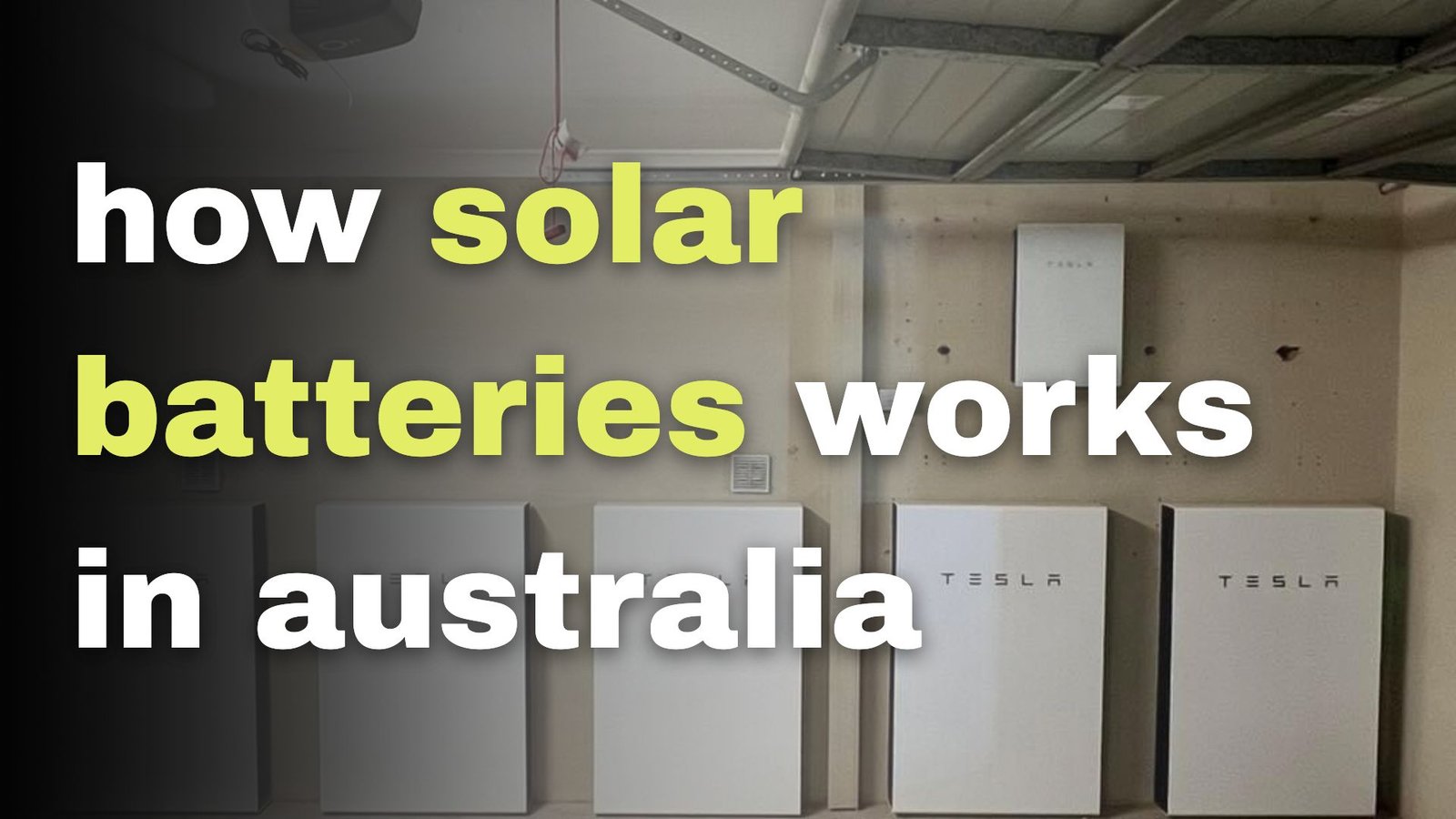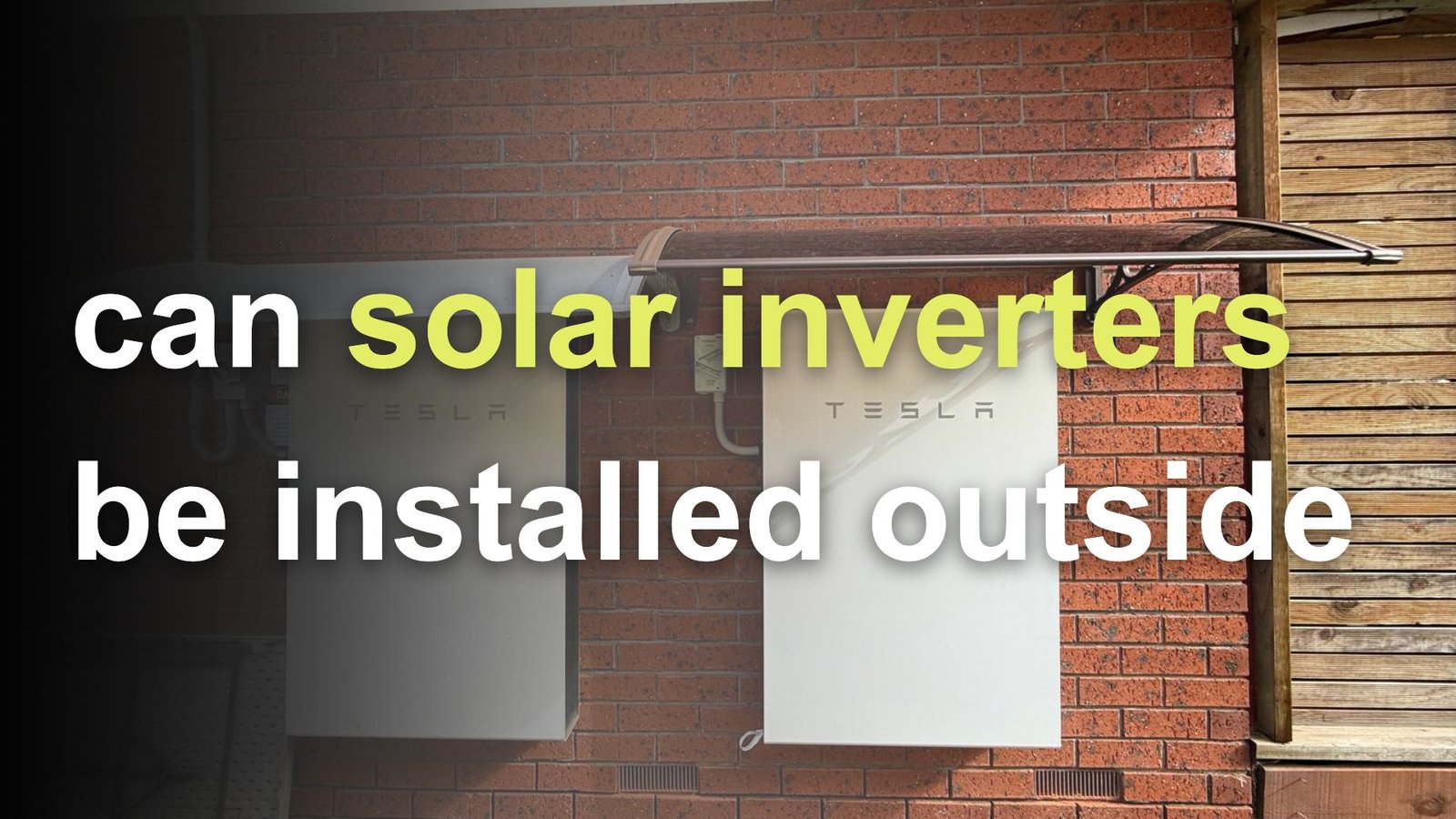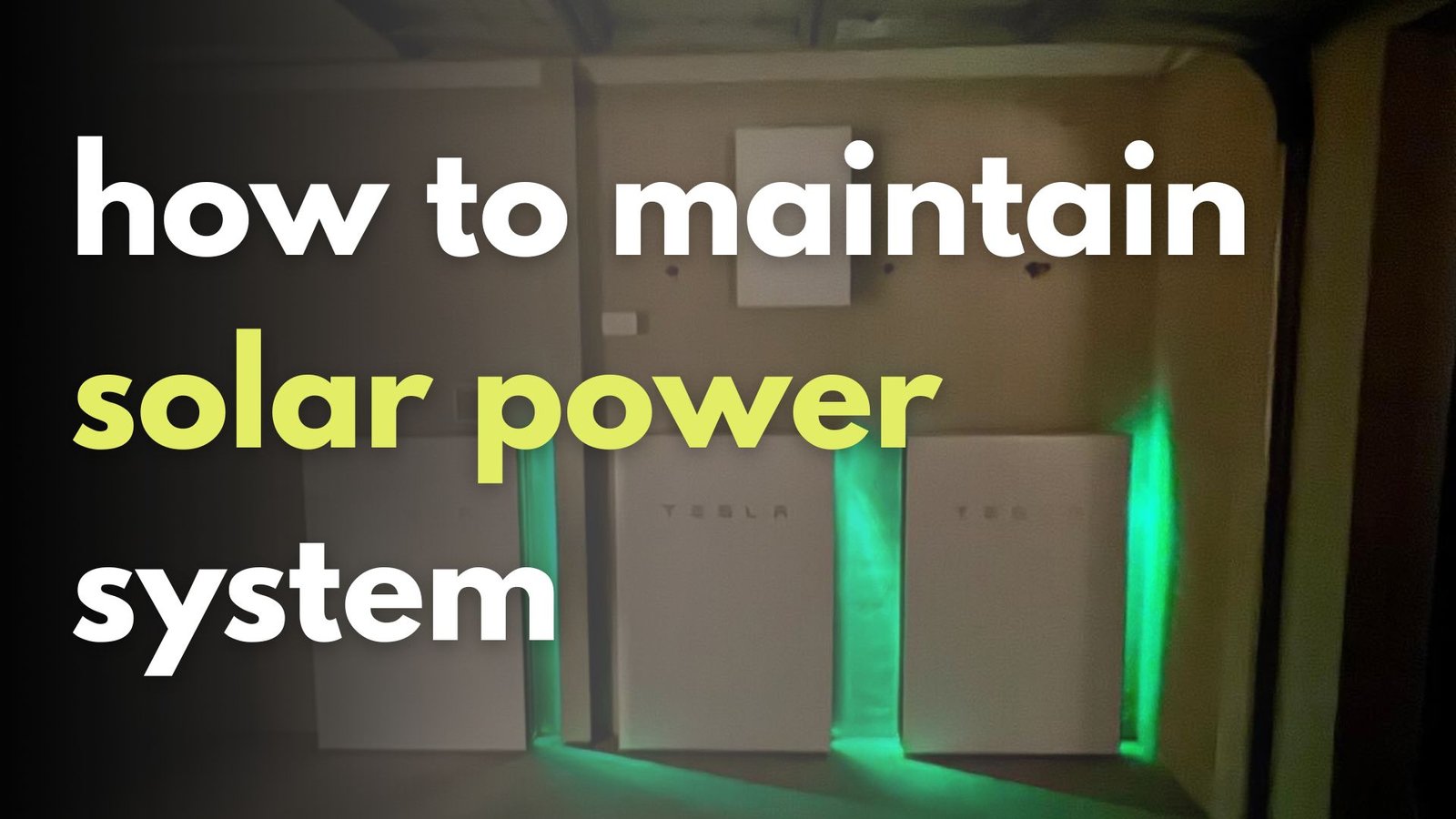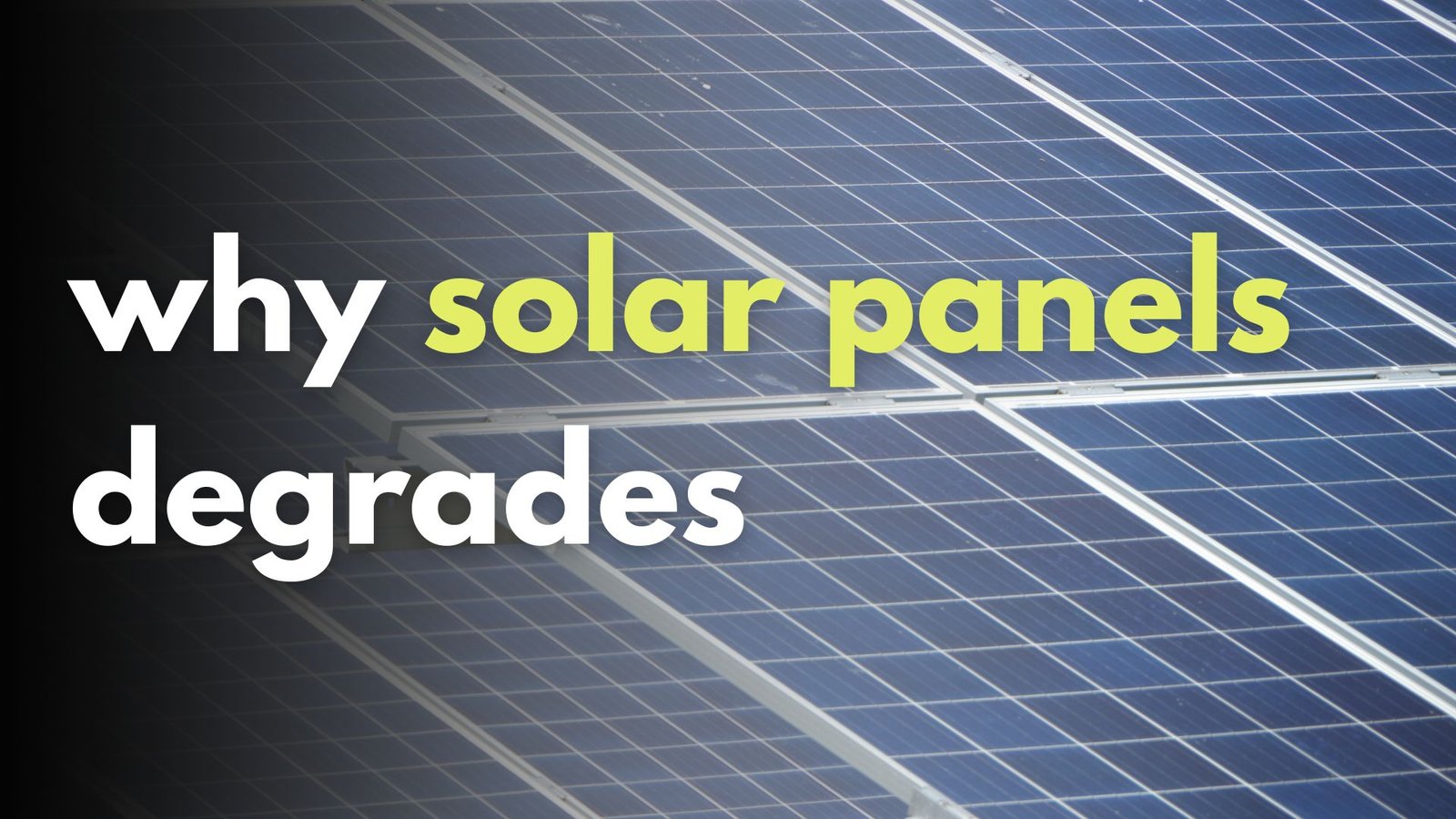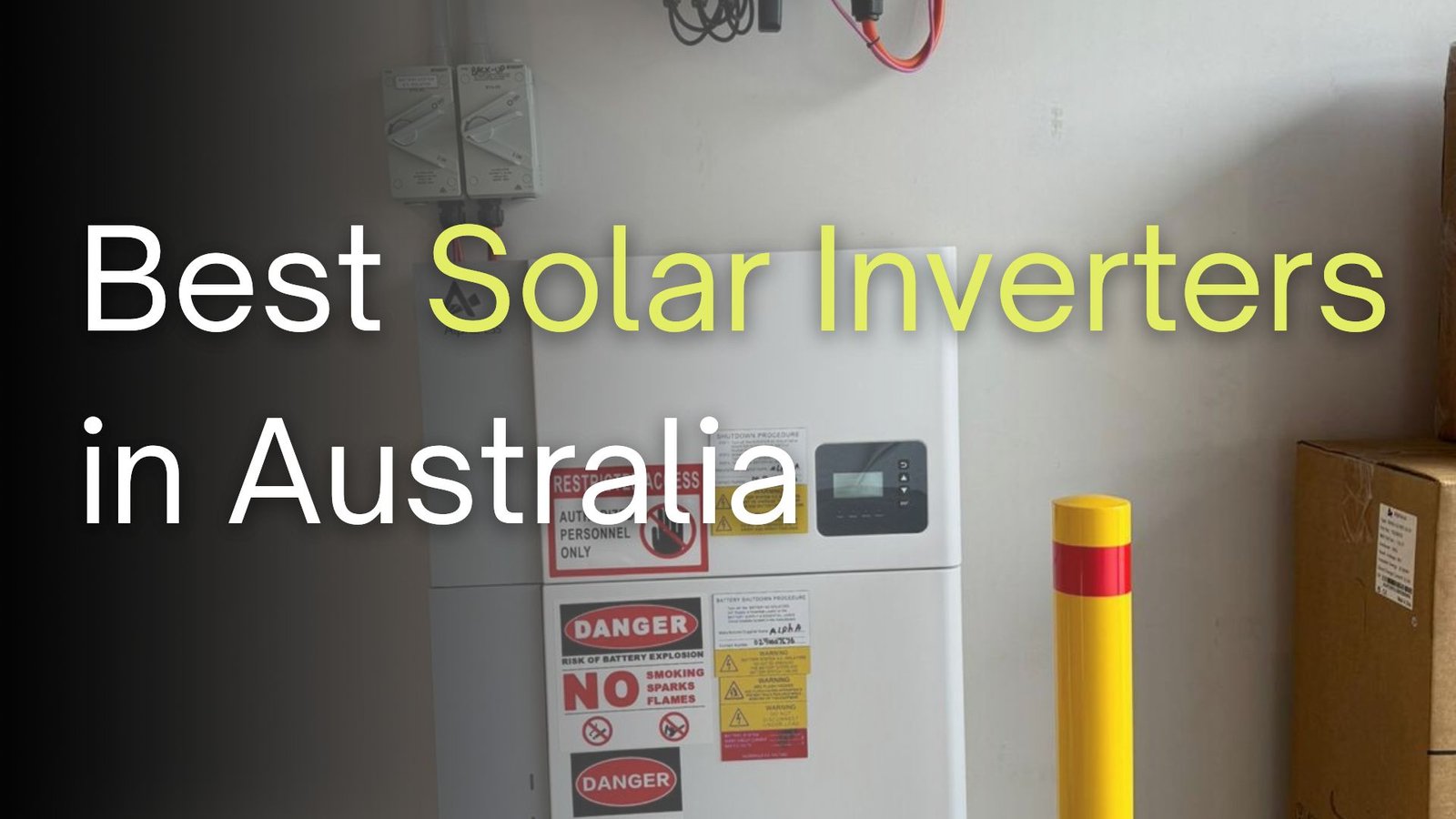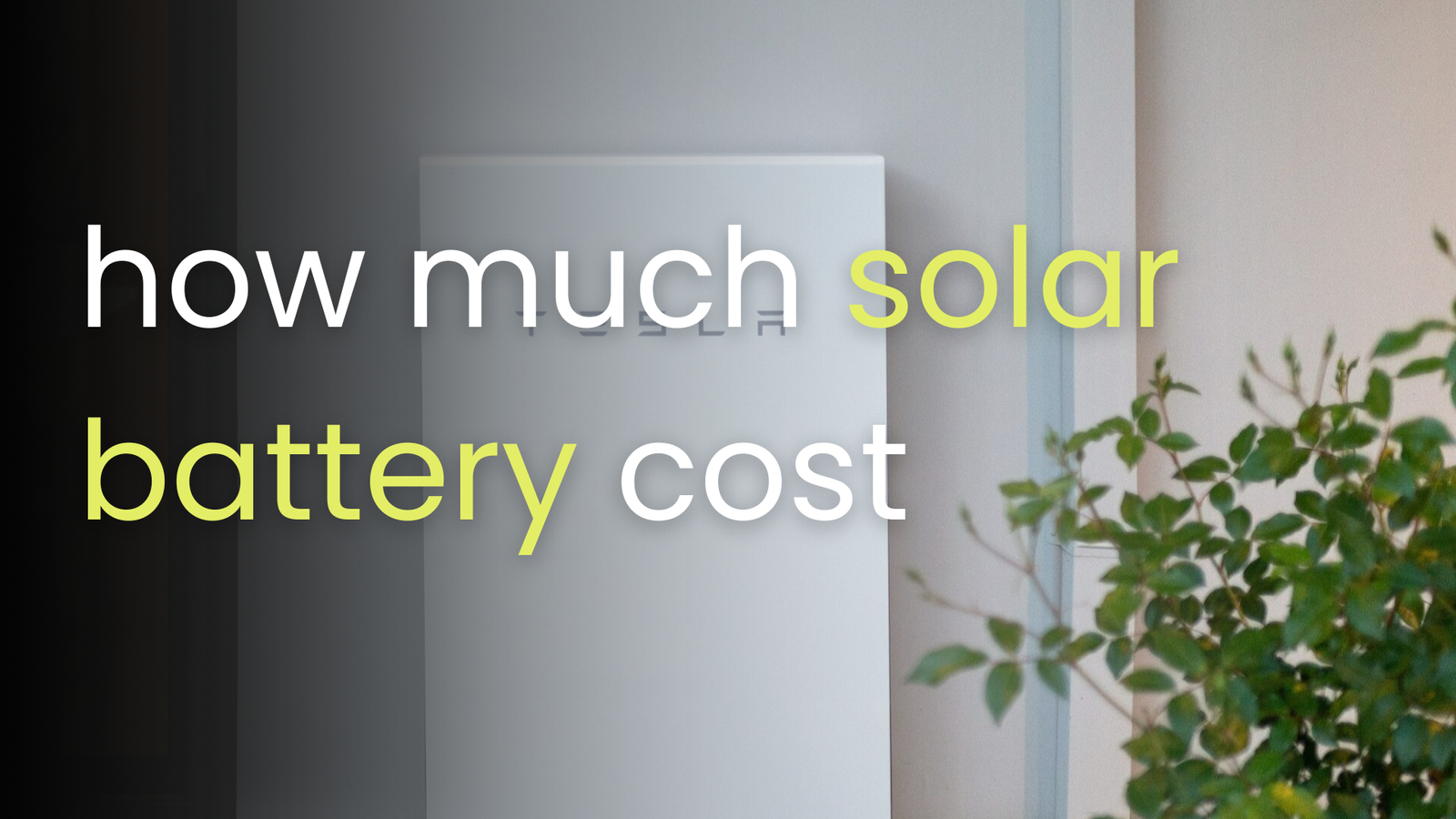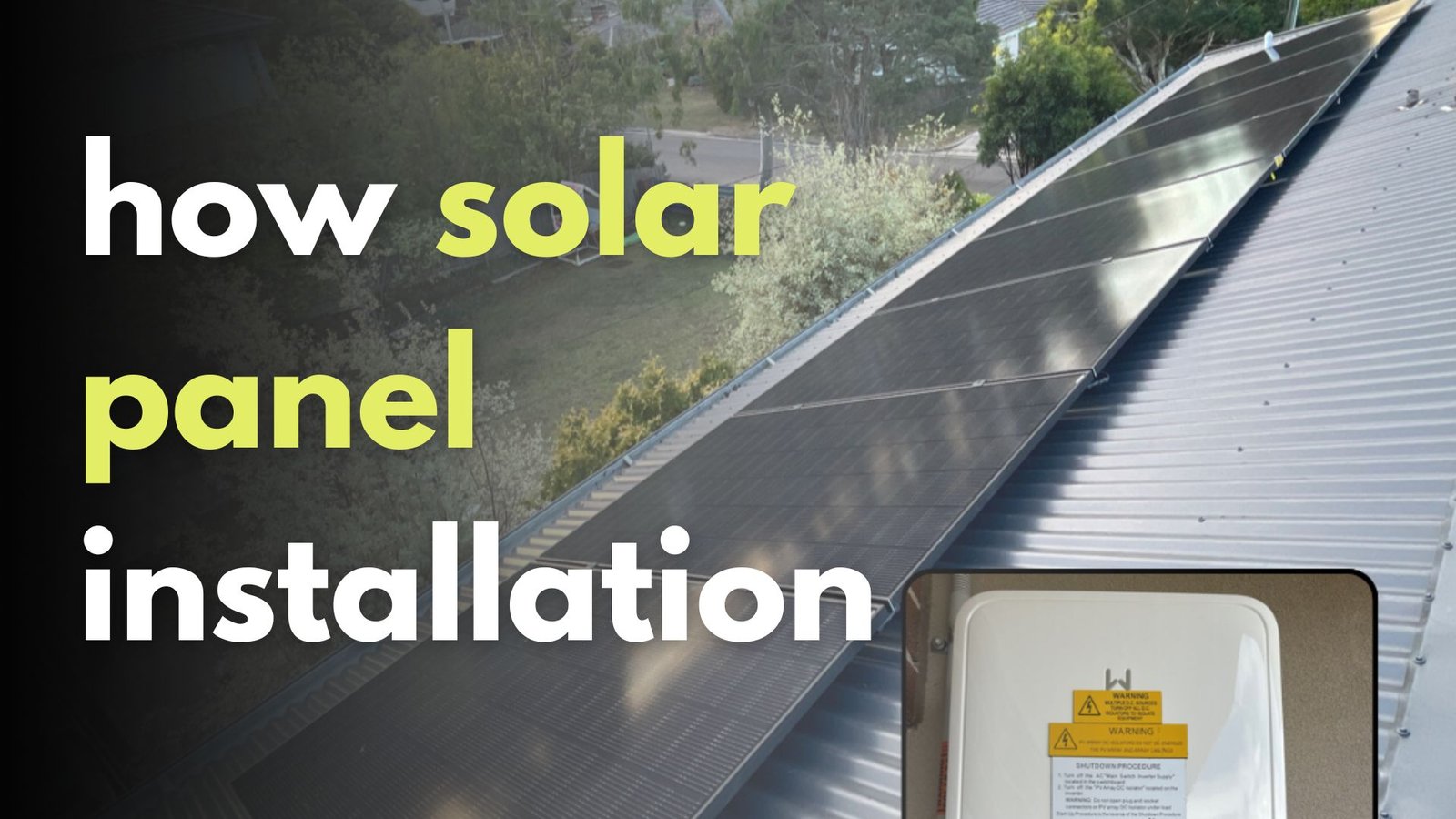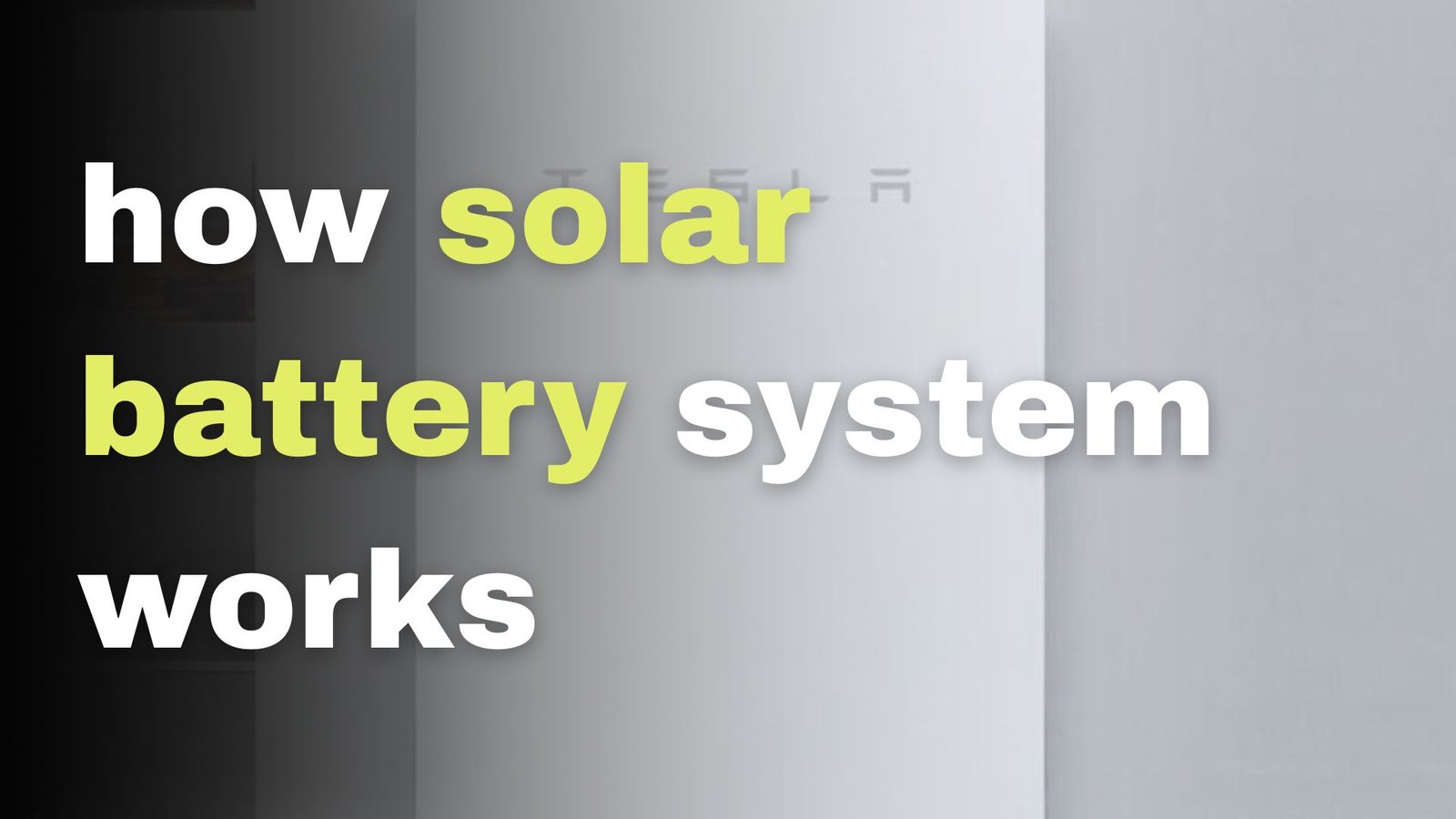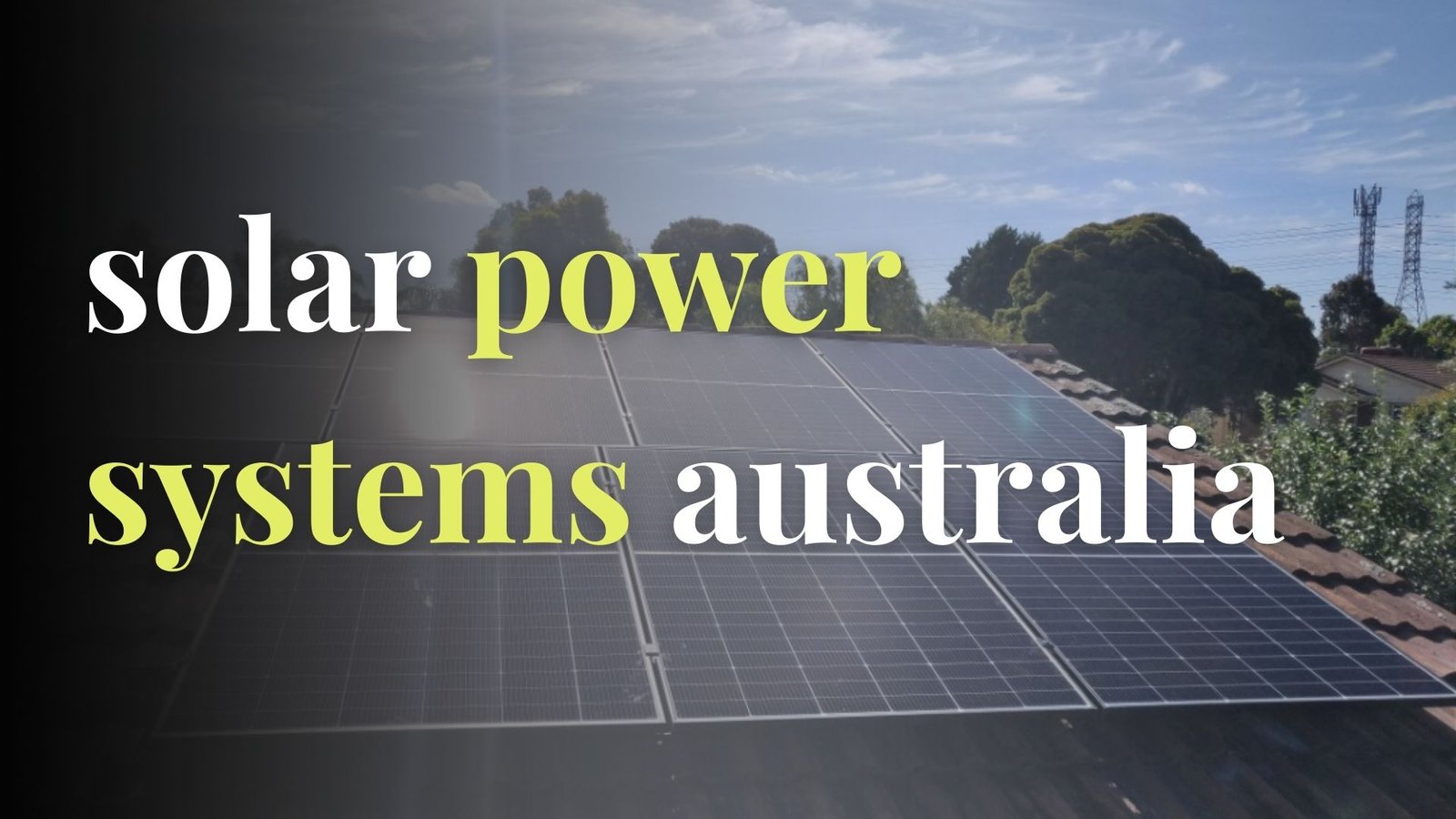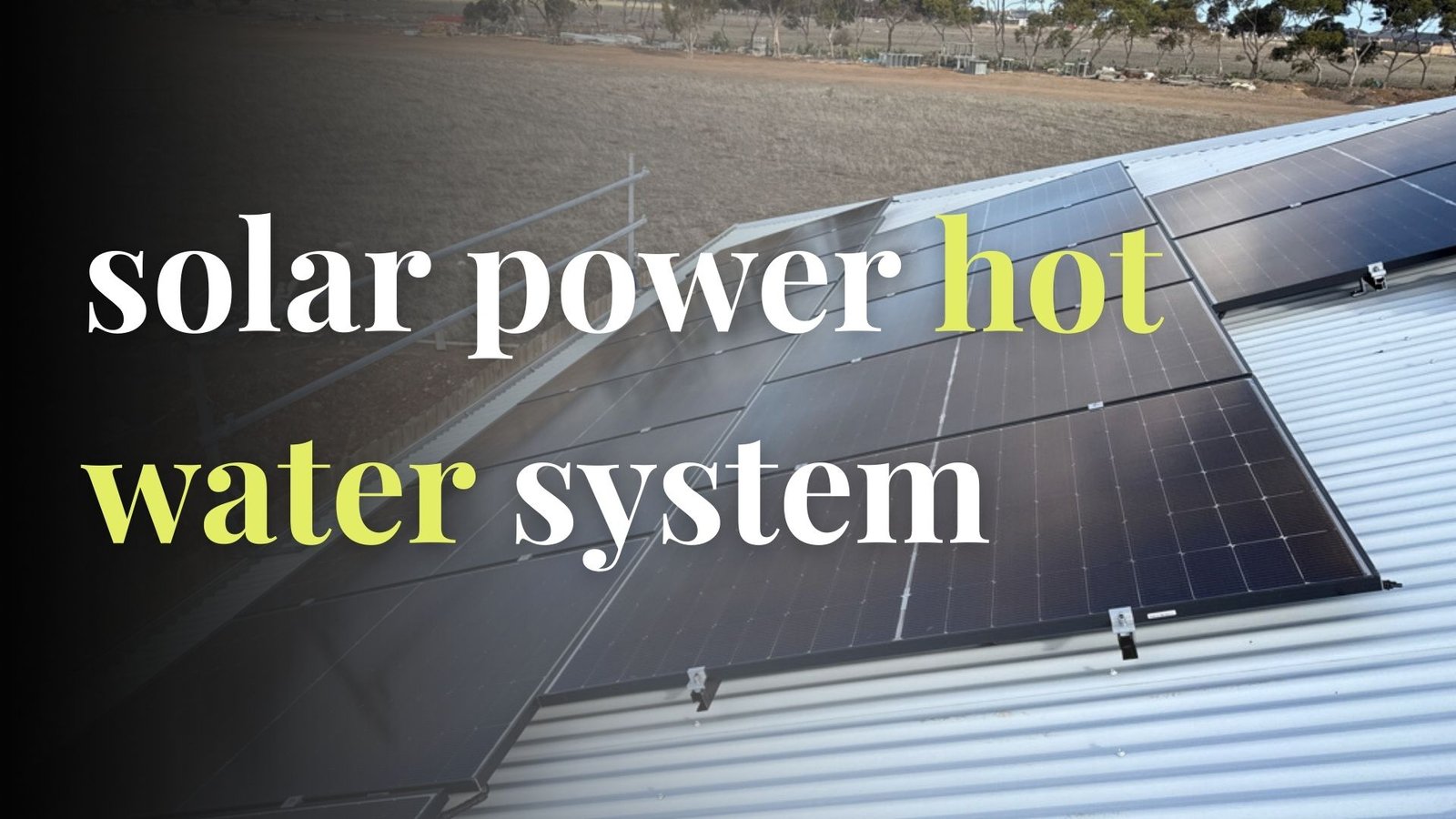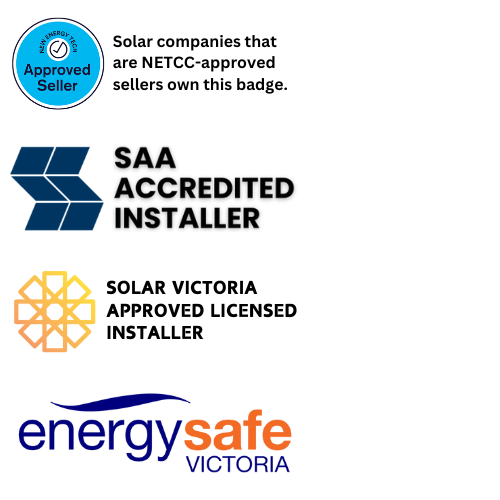How Solar Batteries Work in Australia: A Simple Explanation
Australia is one of the best countries in the world for utilising solar panels on roofs. More and more people are using solar batteries to store extra solar power since electricity rates are going up and the system is under a lot of stress. Homeowners may make smart choices about energy independence, savings, and sustainability if they know how solar batteries works in Australia.
We at Electrical Masters are experts to installing solar batteries that work well in Australia. Our team of experts makes sure that your systems are safe, legal, and work well for your energy requirements.
Get a Free Quote
What Is a Solar Battery?
A solar battery is a storage unit that saves unused electricity produced by your solar panels during the day. Instead of sending surplus energy back to the grid, the battery stores it for later use — such as at night or during blackouts.
Knowing how solar batteries works in australia starts with understanding this simple idea: generate power during the day, store what you don’t use, and consume it when the sun goes down.
Solar batteries are especially valuable in Australia due to:
- High sunlight exposure
- Peak electricity pricing in the evenings
- Increasing grid instability
- Growing interest in energy independence
How Solar Energy Is Stored in a Battery
Solar panels turn sunlight into direct current (DC) electricity. An inverter changes this energy into AC power that your home can utilise. If your home doesn’t consume all the electricity that your solar panels provide, the extra energy goes into your solar battery instead of being sent to the grid.
This is a key aspect of how solar batteries works in Australia. It allows homeowners store solar energy in a way that saves them money and makes them less dependent on grid electricity.
The lithium-ion batteries used in Australia today are small, efficient, and made to last through thousands of charge cycles. They hold power in a chemical form and let it out as electricity when needed.
Step-by-Step: How Solar Batteries Work in Australian Homes
Here is a simple breakdown of how a typical system works:
- Solar panels generate electricity from sunlight
- Your home uses power first
- Extra power charges the battery
- When solar production drops, the battery supplies stored power
- If the battery runs low, the grid provides backup electricity
This cycle repeats daily and is the foundation of how solar batteries works in australia for most residential systems.
How Solar Batteries Reduce Power Bills
One of the best things about getting a solar battery is that it can help you save a lot of money on your electricity bills. You don’t have to buy expensive power from the grid at night; you may use the solar energy you stored during the day.
To make informed financial decisions, you need to know how solar batteries works in Australia. Solar batteries allow you use more of the solar power you make on your own, lower your peak electricity costs, and safeguard your home from rising electricity prices. Over time, this will give you big long-term financial benefits.
At Electrical Masters, we carefully design battery systems based on how much energy your home consumes to make sure they work as well as possible, save you the most money, and are as reliable as possible.
What Happens When the Battery Is Fully Charged?
When your solar battery reaches full capacity:
- Your home continues using solar power
- Extra electricity is exported to the grid
- You may earn feed-in tariff credits
This ensures that no energy is wasted. Knowing how solar batteries works in australia also means understanding system balance — when to store energy and when to export it.
Some systems allow smart scheduling so your battery discharges during high-tariff periods, increasing savings further.
How Solar Batteries Work at Night and During Blackouts
Solar panels stop making electricity at night, but you can still use the solar power you have stored away. Your battery automatically powers your lights, appliances, and other common devices until it runs out of power. This means you can keep utilising clean, cheap electricity even when the sun goes dark.
A solar battery with a backup function is quite useful when the power goes out. It can keep important appliances like refrigerators, lights, internet routers, and medical equipment functioning properly. When the grid goes down, this uninterrupted power supply keeps you secure and comfortable.
Many homeowners want to know how solar batteries works in Australia, especially in places where the electrical networks aren’t very dependable. This is because they are so reliable. Electrical Masters installs battery systems that are totally compliant and ready to be used as backups. These systems are made to provide reliable electricity and long-term peace of mind for Australian homes.
Grid-Connected vs Off-Grid Battery Systems
There are two main battery setups in Australia:
Grid-Connected Systems
These work with the electricity grid and:
- Store solar power
- Export excess energy
- Draw power from the grid when needed
Off-Grid Systems
These operate independently and:
- Require larger battery capacity
- Depend solely on solar and storage
- Are ideal for remote properties
Understanding how solar batteries works in australia means choosing the right setup based on your location and power needs.
Types of Solar Batteries Used in Australia
Different kinds of solar batteries are utilised in Australian homes, and each one has its own set of advantages. Lithium-ion batteries are the best choice because they are very efficient, small, and last a long time. Lithium iron phosphate (LiFePO4) batteries are great for storing energy in homes because they are safer, more stable at high temperatures, and last longer.
Lead-acid batteries are an older type of battery that aren’t used as much now because they need more care and don’t last as long. Most Australian homes now utilise lithium-based battery systems because they are reliable and work well all the time.
Electrical Masters exclusively installs battery systems that have been approved and meet Australian safety regulations. This guarantees that your home will have long-lasting efficiency, protection, and reliable energy storage.
Safety Standards and Compliance in Australia
Battery systems in Australia must comply with:
- Clean Energy Council (SAA) guidelines
- Australian electrical safety standards
- Manufacturer installation requirements
This ensures protection against overheating, fire risks, and system failure. Trustworthy installers are essential for long-term safety.
This technical regulation is another important part of how solar batteries works in australia, as proper installation determines performance and lifespan.
How Long Do Solar Batteries Last?
Most quality batteries last between:
- 8 to 15 years
- 6,000 to 10,000 charge cycles
Battery life depends on:
- Depth of discharge
- Climate conditions
- Charging habits
- Installation quality
Electrical Masters provides systems backed by warranties and expert after-sales support.
Environmental Benefits of Solar Batteries
Solar batteries are a big part of Australia’s plan to use less fossil fuels. By storing clean solar energy made during the day, they let homeowners consume sustainable energy even after the sun goes down. This cuts down on the need to get power from coal- or gas-powered systems, which helps lessen carbon emissions overall.
By lowering peak demand, solar batteries also alleviate pressure on the power network, which helps make the energy system more reliable and efficient. Learning how solar batteries works in Australia shows how they help the country reach its sustainability goals and move towards a cleaner, greener future.
Why Choose Electrical Masters for Solar Battery Installation?
Electrical Masters brings experience, certified expertise, and proven results to every project. Our team:
- Designs systems tailored to your household
- Uses high-quality battery brands
- Ensures full safety compliance
- Offers long-term performance support
We combine technical knowledge with customer-focused service, helping homeowners confidently transition to energy storage.
Understanding how solar batteries works in australia becomes easy when guided by professionals who know local conditions and regulations.
Common Myths About Solar Batteries
Myth 1: Batteries don’t work on cloudy days
Truth: They store energy produced earlier.
Myth 2: Batteries make you fully off-grid automatically
Truth: Most systems remain grid-connected unless designed otherwise.
Myth 3: Batteries are unsafe
Truth: Certified systems installed by professionals are extremely safe.
These misconceptions highlight why accurate education on how solar batteries works in australia is essential.
Future of Solar Batteries in Australia
Battery technology continues to evolve with:
- Higher capacity storage
- Faster charging
- Smart energy management
- Virtual power plant (VPP) integration
Australia’s energy future depends heavily on battery storage, making them a smart long-term investment.
Final Thoughts
understanding how solar batteries works in Australia gives homeowners the power to control their energy use, lower their power costs, and keep their appliances running. Solar batteries are more than just storage devices; they are the key to a smarter, greener, and more self-sufficient energy future.
When you work with Electrical Masters, you get expert system design, competent installation, and reliable support from a staff that knows what Australians need in terms of energy.
Electrical Masters is here to help you make the switch to solar battery solutions for your house with confidence if you’re ready to do so.
Frequently Asked Questions (FAQs)
Most home batteries store between 5kWh and 15kWh, depending on the model and household usage.
Yes. Many modern inverters support battery retrofitting. Electrical Masters can assess compatibility.
Only systems with backup functionality can supply power during blackouts.
Yes. With rising power costs and government incentives, batteries offer long-term financial and energy security benefits.
Most residential battery installations take one day when performed by certified technicians.
Talk to Our Expert
